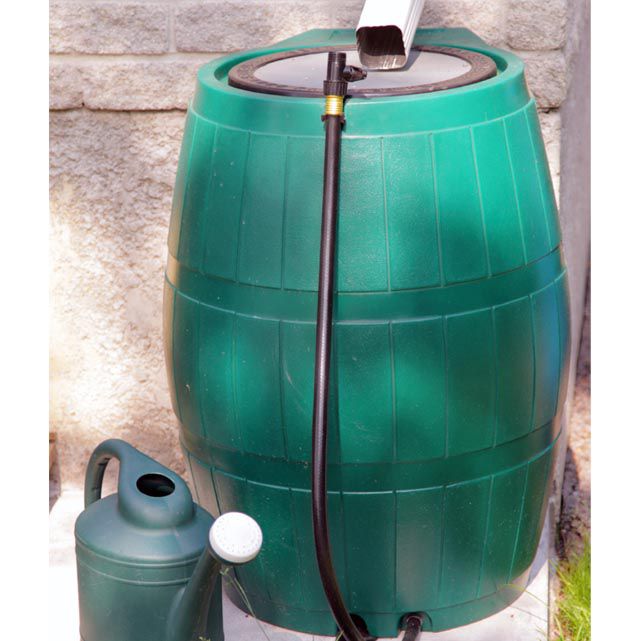 Increasingly popular, rain barrels are a great addition to the landscape design and Eavestrough system of countless Canadian homes. From simple to more complex rainwater collection systems, people everywhere are more and more concerned with adequately managing rainwater on their property. To that end, below are several good reasons why you should install rain barrels for your residence.
Increasingly popular, rain barrels are a great addition to the landscape design and Eavestrough system of countless Canadian homes. From simple to more complex rainwater collection systems, people everywhere are more and more concerned with adequately managing rainwater on their property. To that end, below are several good reasons why you should install rain barrels for your residence.
Set your own watering schedule
Each summer, most regions abide by specific rules relative to heat waves and water bans. This in turn affects watering schedules as you cannot use water supplied by the municipality for your plants and lawn. On the other hand, using rain barrels will allow you to use the rainwater collected to that same end. Although you must be careful when you water plants and vegetables as the water collected may be unfit for consumption depending on your roofing system and the type of rain gutters you have installed.
Reduces dependence on municipal water
Water from the municipal system is not only very costly in some cities, it is also available in limited quantities during certain periods of the year. Having your own water collection system in your backyard will reduce dependence on public utilities, and maybe help you save a few bucks along the way.
Allows for the correct humidity level in the foundations and diverts water to strategic areas
Rain barrels will allow you to collect rainwater from the eavestrough system rather than leaving it near the foundations. It is a very efficient way to control where water will go and; thus, reduce the risk of infiltration in the foundations.
Minimizes the quantity of water sent down the sewage system and treated by the municipality
Every time it rains, hundreds of liters of water are sent into the sewage system. Collecting and using the rain gutter water allows easing the amount to be treated. Although it’s not necessarily fit for human consumption, such water may be used for watering plants or feeding a small basin or water fountain. On a larger scale, this could reduce considerably the quantity of water treated by municipalities for no apparent reason.
Decreases water pollution
Rainwater moves through the soil into lakes, rivers, or streams. From time to time, water gets polluted along the way, thereby exacerbating water pollution problems. Collecting rainwater thus helps counter in part these negative effects.